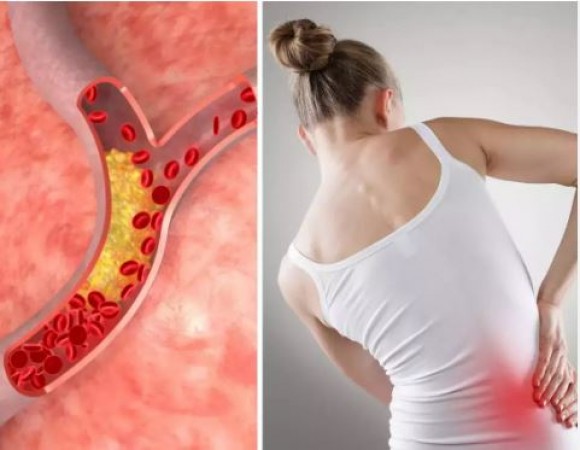
Cholesterol is a waxy, fat-like substance found in every cell of your body. It is essential for producing hormones, vitamin D, and substances that help digest foods. While your body needs cholesterol to function properly, having high levels can lead to health problems.
Excess cholesterol can lead to plaque buildup in your arteries, known as atherosclerosis. This can narrow and harden the arteries, restricting blood flow.
High cholesterol is a major risk factor for coronary artery disease, heart attacks, and strokes. The risk increases if you have other conditions like high blood pressure, diabetes, or a family history of heart disease.
Plaque can restrict blood flow to vital organs. This can lead to complications like angina (chest pain), peripheral artery disease, and chronic kidney disease.
High cholesterol often has no symptoms until it causes serious problems like heart attacks or strokes. Regular check-ups and blood tests are crucial for early detection.
When plaque builds up in the coronary arteries, it can cause chest pain or discomfort, known as angina. This pain can feel like pressure, squeezing, or fullness in the chest.
Reduced blood flow can lead to shortness of breath, especially during physical activity. This happens because your heart has to work harder to pump blood through narrowed arteries.
Poor circulation and reduced oxygen supply to the body can make you feel unusually tired or dizzy. This can be a sign that your heart isn't working efficiently.
These are fatty deposits that develop under the skin, often appearing as yellowish lumps around the eyes, elbows, knees, and other joints.
A white or gray ring around the cornea of the eye can indicate high cholesterol levels, especially in younger individuals.
Peripheral artery disease caused by high cholesterol can lead to swollen limbs due to poor circulation.
Symptoms include severe chest pain, shortness of breath, cold sweats, and nausea. Immediate medical attention is crucial.
Look for sudden numbness or weakness, especially on one side of the body, confusion, trouble speaking, or loss of balance.
Symptoms include leg pain when walking, numbness, and coldness in lower legs or feet.
A blood test that measures your levels of LDL, HDL, total cholesterol, and triglycerides. It helps determine your risk for heart disease.
Regular check-ups with your doctor are essential to monitor cholesterol levels and make necessary lifestyle changes or start medications.
Engage in at least 30 minutes of moderate exercise most days of the week. Activities like walking, cycling, and swimming can help improve cholesterol levels.
Smoking lowers HDL cholesterol and increases the risk of heart disease. Quitting smoking can improve your HDL cholesterol level.
Losing excess weight can help lower cholesterol levels and reduce the risk of heart disease.
If lifestyle changes aren't enough, your doctor may prescribe medications to help lower your cholesterol levels. These can include statins, bile-acid-binding resins, and cholesterol absorption inhibitors.
Keep track of your cholesterol levels and follow your doctor's advice. Regular monitoring can help manage your condition effectively.
Join support groups or online communities to share experiences and tips on managing high cholesterol.
Keep yourself educated about the latest research and treatments for high cholesterol. This can empower you to make informed decisions about your health. High cholesterol is a serious but manageable condition. By understanding the symptoms and risks, and taking proactive steps to maintain healthy cholesterol levels, you can significantly reduce your risk of heart disease and other complications. Regular check-ups, a healthy diet, exercise, and possibly medications are key to managing high cholesterol effectively.
Seeing the beauty of these places of Madhya Pradesh, you will also be forced to visit them
Which cities are the best option for pre wedding shoot?
IndiGo Flight Returns to Mumbai After Extra Passenger Found Standing: How it Happened?